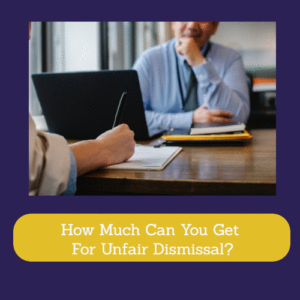 Racial discrimination lawyers are adept at helping you if there has been an instance of racial discrimination in your life. Racial Discrimination Lawyer Near You.
Racial discrimination lawyers are adept at helping you if there has been an instance of racial discrimination in your life. Racial Discrimination Lawyer Near You.
That might be at work, in an education setting or in many places – but if you’ve suffered racial discrimination, you should note that you can take action.
Racial discrimination is a serious matter and one that you’re protected against under the Equality Act 2010.
To be connected to a specialist discrimination solicitor near to where you live or work, please either call us now on 0845 1391399 or complete a Free Online Enquiry.
Racial Discrimination Lawyers
Knowing what to do when you experience or witness racial discrimination isn’t easy, whether it’s in the workplace or elsewhere.
Under the Equality Act 2010, you’re protected against any discrimination because of your race, as well as other protected characteristics such as age, marriage and civil partnership, religion or beliefs, amongst others.
It’s down to employers to do everything to protect their staff, workers, and applicants from discrimination, and if discrimination still occurs, it might be that they have not done enough to prevent it.
Another part of discrimination law means that employers have a duty of care to look after the wellbeing of their employees. So, if you feel that they haven’t done so, it could lead to a breach of contract and in some cases, may lead to a constructive dismissal case.
Lawyers For Racial Discrimination
Racial discrimination is just one aspect of discrimination and there are several other protected characteristics. Discrimination can fall under more than one category in certain circumstances, so it’s worth speaking to a legal expert to understand the full details of your case.
If you’ve experienced racial discrimination, the first thing you should do is seek advice.
A racial discrimination lawyer can assist you with the important legal aspects of your case, including if you’re planning to take legal action.
Acas sets out a code of practice for the process that should be followed once a grievance has been raised, although many employers will have their own process in place.
A formal grievance meeting should take place within four weeks, giving time for your employer to collate any evidence.
It’s also worth knowing that there is more than one type of discrimination, which might mean a different process for raising a grievance…
Direct discrimination is when you’re treated unfairly or negatively because of your race, which could mean that you’ve been overlooked for a job or a promotion despite being the best-qualified candidate.
Indirect discrimination is where the criteria of something has a discriminatory effect on you because of your race, so while it’s not specifically directed at you, it has a negative effect on you because of your race.
Racial Discrimination Lawyers Near Me
At Solicitors Near Me, we understand that racial discrimination in the workplace is a difficult and sensitive issue.
Our expert racial discrimination solicitors can help advise you throughout the process to achieve a positive outcome for you.
And we even connect you with expert employment solicitors near you for FREE.
Yep, there’s no obligation to proceed with the solicitor we connect you with and until you choose to go ahead with a solicitor, everything is completely FREE.
To be connected to a specialist discrimination solicitor near to where you live or work, please either call us now on 0845 1391399 or complete a Free Online Enquiry.


 International employment lawyers can assist with employment issues that might incorporate issues overseas, such as if any part of your role involves travelling overseas, or if you’ve travelled overseas as part of work.
International employment lawyers can assist with employment issues that might incorporate issues overseas, such as if any part of your role involves travelling overseas, or if you’ve travelled overseas as part of work. Can you be taken to court for not working notice?
Can you be taken to court for not working notice?